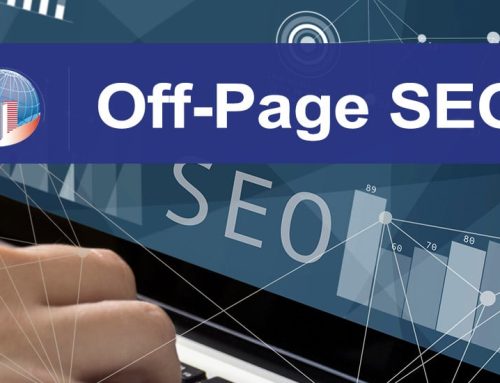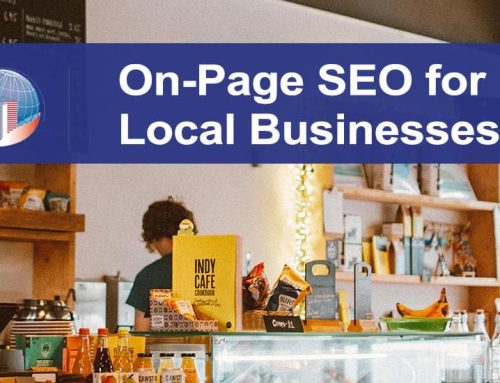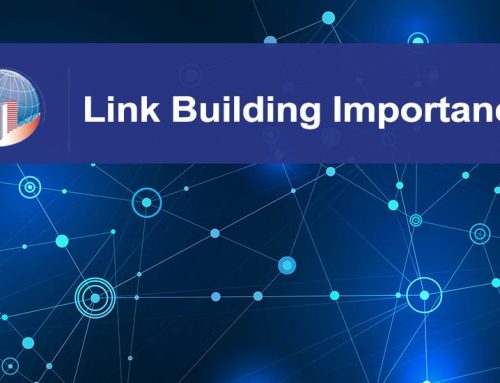
A website is essential for establishing an online presence, but it can be frustrating if your site doesn’t appear on Google. Many business owners assume that website launching is enough to appear in search results, but several factors can prevent Google from indexing or ranking it. Understanding the reasons behind this issue and implementing a solid search engine optimization (SEO) service can help improve your website’s visibility.
Your Website Isn’t Indexed by Google
One of the most common reasons a website doesn’t appear on Google is that it hasn’t been indexed. Google must crawl and index your website before it can be displayed in search results. If your website is new, has little content, or lacks internal linking, it may not have been crawled yet. Additionally, incorrect settings in your robots.txt file or meta tags may block search engines from indexing your site.
Check your website’s indexing status using Google Search Console to fix this. If Google hasn’t indexed your pages, submit your sitemap manually. Removing any “no index” tags or restrictive settings will help ensure that your website is easily accessible to search engine crawlers and will improve its chances of appearing in search results.
Checking Indexing Status with Google Search Console
One of the first steps to determine why your website isn’t showing up on Google is to check its indexing status using Google Search Console. This free tool lets you see which pages have been indexed and identify any errors preventing indexing. By entering your URL in the URL Inspection Tool, you can verify if Google has crawled your page and whether any issues exist. If your page isn’t indexed, you may need to request indexing manually. Monitoring this regularly ensures your website stays visible in search results.
Submitting a Sitemap to Google
A sitemap is a structured file that helps Google understand and index your website’s content efficiently. Without a sitemap, search engines may take longer to discover all your pages, especially if your site has a complex structure. Submitting an XML sitemap through Google Search Console speeds up the indexing process by providing Google with a clear roadmap of your site. It’s essential to keep your sitemap updated whenever new pages are added or removed. Proper sitemap management improves crawlability and ensures search engines can find your most important content.
Understanding Robots.txt and Noindex Tags
Incorrect settings in your robots.txt file or meta tags can unintentionally prevent search engines from crawling and indexing your website. A robots.txt file tells search engine bots which pages they can or cannot access, while a noindex meta tag instructs Google not to include a page in search results. If your website contains restrictive rules in these files, it could block essential pages from being indexed. Reviewing your robots.txt file and meta tags ensures that Google can access and rank your content. Removing unnecessary “disallow” directives or “noindex” tags can help resolve indexing problems.
The Role of Internal Linking in Indexing
Internal linking is vital in helping Google discover and index your website’s pages more effectively. When pages are well-linked, search engine crawlers can navigate your site more efficiently, improving the chances of indexing important content. A weak internal linking structure can isolate some pages, making them harder for Google to find. Ensuring that key pages are linked from other indexed pages helps establish a logical site structure. Descriptive anchor text enhances keyword relevance and strengthens your site’s overall SEO.
Google’s Crawl Budget and Its Impact on Indexing
Google assigns each website a crawl budget, determining how often and how many pages it will crawl. If your site has many pages or technical issues like slow loading speeds, Google may not crawl and index all of your content. Optimizing your crawl budget involves reducing unnecessary redirects, fixing broken links, and ensuring that high-priority pages are easy to access. Keeping your website structure clean and efficient can improve how frequently Googlebot visits and indexes your site. A well-optimized crawl budget ensures that your most valuable pages appear in search results.
Your Website Lacks SEO Optimization
Even if your website is indexed, it won’t rank well without proper SEO optimization. Google’s algorithm relies on content relevance, keyword usage, and on-page SEO to determine which pages to display for specific search queries. If your website lacks optimized meta titles, descriptions, and headings, Google may not recognize it as a relevant source for users.
A strong search engine optimization (SEO) service can help optimize your site’s structure, ensuring that essential elements such as title tags, H1 and H2 headers, and internal linking are used effectively. Including semantic keywords throughout your content will also improve search visibility. Optimizing images, improving site speed, and ensuring mobile-friendliness are critical steps in making your site more attractive to search engines.
Low-Quality or Thin Content Can Harm Rankings
Content quality plays a significant role in search rankings. Websites with low-value, duplicate, or auto-generated content often struggle to rank on Google. The search engine prioritizes sites that provide helpful, well-structured, informative content that meets user intent. If your website has only a few pages with minimal content, Google may see it as less relevant than competitors with in-depth articles.
To improve your rankings, focus on creating high-quality, original content that provides value to your audience. Publishing well-researched blog posts, guides, and industry-related articles will establish your website as an authoritative source. Using Latent Semantic Indexing (LSI) keywords naturally throughout your content will enhance relevance without keyword stuffing. Regularly updating and expanding your content can also help improve rankings over time.
Technical Issues That Can Prevent Your Website from Appearing on Google
Several technical problems can impact your website’s ability to rank. One common issue is having a “noindex” tag in your website’s HTML code, which tells search engines not to index your pages. If this tag is mistakenly added to your site, Google will not include it in search results. Checking your website’s code and using Google Search Console’s URL inspection tool can help identify and fix this issue.
Another critical factor is page speed and mobile optimization. Google considers page load time and mobile responsiveness when ranking websites. If your site takes too long to load or isn’t mobile-friendly, it may rank lower or not appear. Using tools like Google PageSpeed Insights can help identify areas for improvement. Optimizing images, minimizing CSS and JavaScript, and enabling browser caching can significantly improve your site’s performance.
Your website’s authority also affects its visibility on Google. Websites with strong backlinks from reputable sources rank higher than those without external links. If your site lacks quality backlinks, it may struggle to gain credibility in search rankings. Building backlinks through guest posting, industry collaborations, and business directories can help boost your domain authority and improve search rankings.
How a Professional SEO Service Can Help
If your website isn’t ranking despite your best efforts, working with a professional search engine optimization (SEO) service like Salterra can provide the expertise needed to improve your online presence. An experienced SEO team can thoroughly audit your website to identify indexing issues, optimize content with semantic keywords, and implement an effective link-building strategy.
Salterra specializes in technical SEO, ensuring that all aspects of your website—site speed, mobile responsiveness, and structured data—are fully optimized. Their team focuses on on-page and off-page SEO, helping businesses increase their search visibility through proven strategies. Whether your goal is to rank locally or reach a broader audience, Salterra’s SEO services can provide a customized approach to drive more traffic and generate leads.
If you struggle to get your website noticed on Google, proper SEO steps can make all the difference. Professional assistance can improve your rankings, attract visitors, and grow your business online. Contact Salterra today to enhance your website’s SEO performance!
FAQs About Search Engine Optimization (SEO)
Why Trust Salterra
Salterra Web Design is a premier Tucson web design agency dedicated to helping local businesses thrive online. Since 2011, we have specialized in creating stunning, user-friendly websites for small—to medium-sized businesses in Tucson, Arizona. Our team of experienced web developers, graphic designers, and digital marketing professionals works together to provide comprehensive digital solutions tailored to your business needs.
At Salterra, we offer a wide range of services designed to enhance your online presence and drive business growth:
- Web Design and Development: We create beautiful, responsive websites that look great and provide a seamless user experience across all devices. Our designs are tailored to reflect your brand identity and meet your business goals.
- Search Engine Optimization (SEO): Our expert SEO services ensure your website is easily found by potential customers. We use advanced techniques to improve your search engine rankings, increase organic traffic, and boost your online visibility.
- Digital Marketing: From social media management to pay-per-click (PPC) advertising, our digital marketing strategies are designed to engage your audience and convert visitors into loyal customers. We focus on creating targeted campaigns that deliver measurable results.
- Content Marketing: Our team produces high-quality, engaging content that resonates with your audience and enhances your brand’s online presence. We help you build authority and trust through valuable and informative content.
- Website Hosting and Maintenance: We provide reliable hosting solutions and ongoing website maintenance to ensure your site remains secure, up-to-date, and performs at its best.
As a family-owned business, we offer personalized service and build long-term client relationships. Our commitment to quality work and fair pricing has earned us a solid reputation in the Tucson community. We understand local businesses’ unique challenges and are passionate about helping them succeed in the digital world.
If you are looking for a trusted partner to elevate your online presence, look no further than Salterra Web Design. Contact us today to learn how we can help your Tucson business grow with our expert web design and digital marketing services.
Contact Information:
Email: info.salterra@gmail.com
Phone: (520) 214-3729
Location: Tucson, AZ
Salterra operates in Arizona, with a strong presence in key regions such as Tucson, Tempe, Phoenix, and Chandler.
Our Locations
Web Design in Casa Adobes | Web Design in Catalina Foothills | Web Design in Marana | Web Design in Oro Valley | Web Design in Drexel Heights
Web Design Sahuarita | Web Design South Tucson | Web Design Green Valley | Web Design Vail



